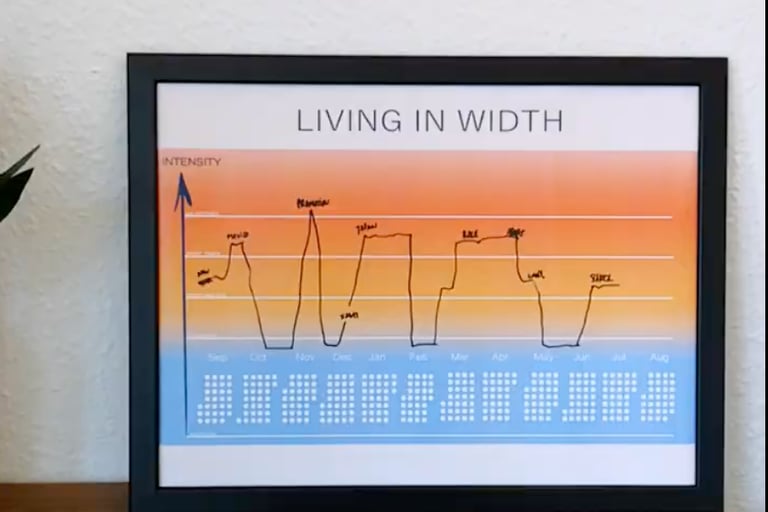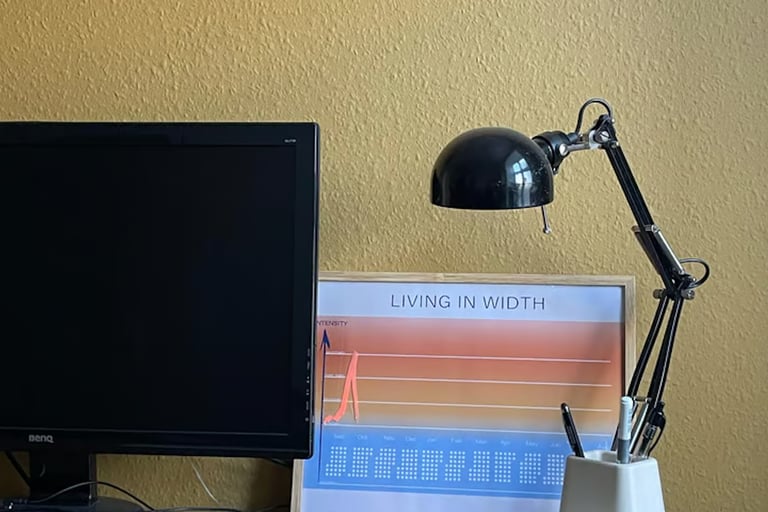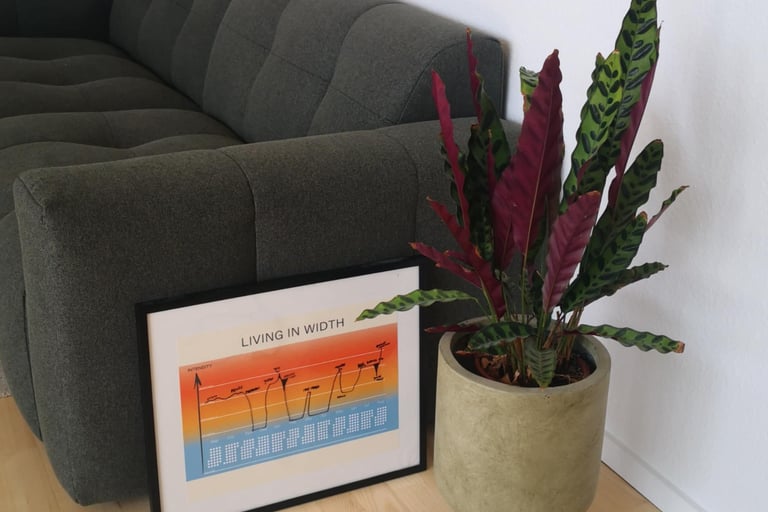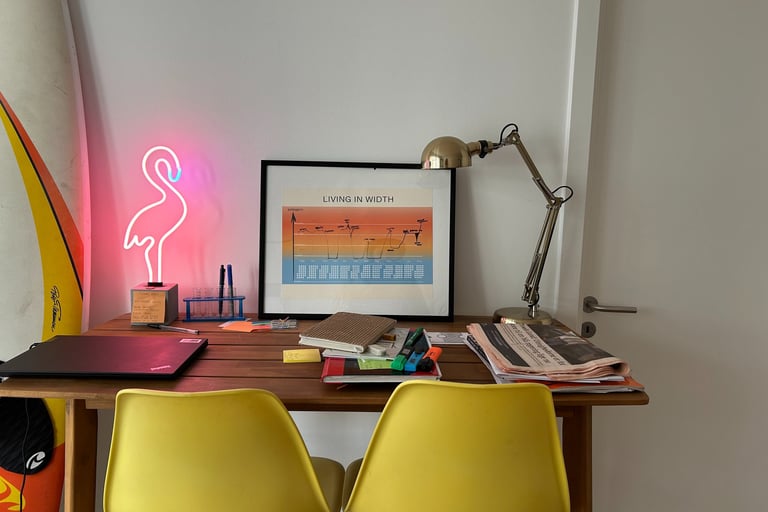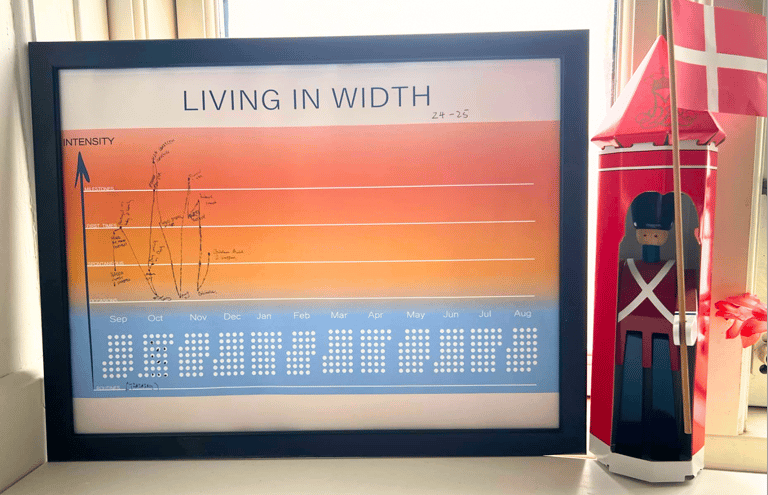10 signs you're living long but not wide
Are you optimizing for years lived but missing life's richness? Learn the 10 warning signs you're living long but not wide


You exercise daily. Track your macros. Optimize your sleep. Take supplements. You're doing everything "right" for longevity.
While tech companies pour billions into biology and longevity research, we're missing the point: we already have more time and better quality of living than any of the generations before us.
But here's the uncomfortable question: rather than asking "how do we live longer?" what if we looked at it from a different perspective? How do we live a life worth living, by living wider?
There's a crucial difference between living long and living wide—between accumulating birthdays and accumulating experiences that make you feel deeply alive.
The problem? Most of us are unknowingly optimizing for the wrong metric.
The Space Revelation: What Astronauts Taught Us About Living Wide
Astronauts experience accelerated aging effects in space, for example gene expression modification, loss of muscle and bone mass, exposure to radiation, and circadian rhythm disruption. All which mirror those on Earth but at a faster pace.
But here's what's fascinating: the most debilitating aspect wasn't the physical aging. It was the temporal monotony—the loss of meaningful moments that make life feel rich.
This insight birthed a radical idea: Amplevity over longevity.


What Is Amplevity?
Longevity = Living many years on the same path
Amplevity = A life perceived longer than the years lived, thanks to multiple perspectives, travels, challenges, experiences, and lessons learned
Think of it this way: someone who lived to 80 doing the same routine may have a shorter felt experience than someone who lived to 40 but explored different countries, careers, relationships, and ideas.
As the Wide Time philosophy teaches: "The problem is that people are researching how to extend life, when instead, it should be widened."
The Longevity Paradox: How Optimizing for Long Can Make Life Feel Short
Here's the irony: many longevity practices, like rigid routines, strict protocols, constant optimization, can actually reduce the sense of a life well-lived.
Dr. Filippo Ongaro, who worked for several years at the European Space Agency (ESA) as a medical doctor of European astronauts, focusing especially on the treatment of accelerated aging of crew members and on the maintenance of an optimal level of psycho-physical performance, emphasizes that "longevity should come from the joy of living, not the fear of dying." Yet fear is exactly what drives most longevity obsessions.


The Integration: How to Live Both Long AND Wide
The solution isn't choosing between longevity and amplevity it's integrating both.
The Wide Time Framework:
Track meaningful moments, not just metrics (get your Wide Time Calendar)
Create temporal anchors—first-time experiences that prevent days from blurring
Pursue amplevity—multiple perspectives, challenges, and transformations
Build inner work—self-awareness, purpose, and joy as longevity foundations
The Practical Integration:
Start here:
For longevity: Maintain the habits that keep your body strong (exercise, nutrition, sleep)
For amplevity: Schedule one "first-time" experience per month
For integration: Reflect quarterly on meaningful moments using the Wide Time Calendar
Take the Test: How Wide Is Your Life?
Measure your amplevity with the Wide Time Experience Age Survey.
It calculates not how many years you've lived, but how wide those years have felt—based on the diversity of experiences, perspectives, and transformations you've accumulated. Your chronological age might be 35. But your experience age could be 50 (if you've lived widely) or 20 (if you've lived narrowly). The goal isn't a specific number. It's awareness.
The Choice
You have two paths:
Path One: Live to 100 with the same routine, same environment, same relationships, same thoughts. Lots of years. Little life.
Path Two: Live with intention, diversity, courage, and presence. However many years you get, they'll feel like lifetimes.
Add yourself to that shift.
Choose amplevity.
5. Stopped Learning
Sign: You no longer explore new hobbies, skills, or ideas.
Why It Matters: Without new challenges, brain function and life satisfaction can decline.
Fix: Seek intellectual stimulation, creative projects, and diverse perspectives to increase amplevity.
6. Every Day Feels Like Monday
Sign: Life feels monotonous, and you struggle to feel refreshed.
Why It Matters: Lack of temporal diversity flattens life and diminishes energy.
Fix: Focus on meaningful experiences and track them alongside tasks to create richer memory density.
7. No Peak Experiences
Sign: You cannot recall moments of awe, connection, or exhilaration.
Why It Matters: Peak experiences create lasting memories that make life feel fuller.
Fix: Pursue first-time adventures, courage-driven challenges, and conversations that shift perspective.
8. Lost Sense of Purpose
Sign: Feelings of doubt, dissatisfaction, or emptiness dominate daily life.
Why It Matters: Longevity without meaning reduces overall life satisfaction.
Fix: Align daily choices with what truly matters to you and focus on purposeful living.
9. Transactional Relationships
Sign: Friendships feel like networking, family time is rushed, and conversations lack depth.
Why It Matters: Deep human connection enhances well-being and the sense that life is rich and wide.
Fix: Cultivate relationships that are authentic, supportive, and transformative.
10. Healthy on Paper, Miserable in Reality
Sign: Physical metrics are strong but happiness feels absent.
Why It Matters: Quality of life depends on emotional fulfillment, meaningful experiences, and social connection.
Fix: Balance physical health with inner work, joy, and activities that give life meaning.
Conclusion: Living wide, not just long, means focusing on meaningful experiences, relationships, and purpose. Watch for burnout signs, increase amplevity, and prioritize quality versus quantity of life to enhance life satisfaction.


10 Warning Signs You're Living Long but Not Wide
1. Months Blur Together
Sign: You cannot recall what made last month different from the one before.
Why It Matters: Life feels longer when filled with novel experiences. Without memorable moments, weeks blend together and meaningful time slips away.
Fix: Track experiences that make you feel alive rather than daily tasks.
2. Self-Care Feels Like Chores
Sign: Exercise, meditation, and routines feel like obligations.
Why It Matters: Joyless self-care does not replenish your energy or well-being.
Fix: Engage in activities that nourish your body and mind while bringing enjoyment.
3. Chronic Fatigue
Sign: You feel drained despite sleeping eight hours.
Why It Matters: Persistent exhaustion can be a sign of burnout affecting both mind and body.
Fix: Create intentional, memorable moments that break daily monotony, such as first-time experiences or spontaneous adventures.
4. Frequent Escape Fantasies
Sign: You often imagine running away or turning to distractions like alcohol, food, or entertainment to numb dissatisfaction.
Why It Matters: These feelings indicate your life may lack meaningful engagement.
Fix: Prioritize experiences and challenges that bring purpose and joy.
